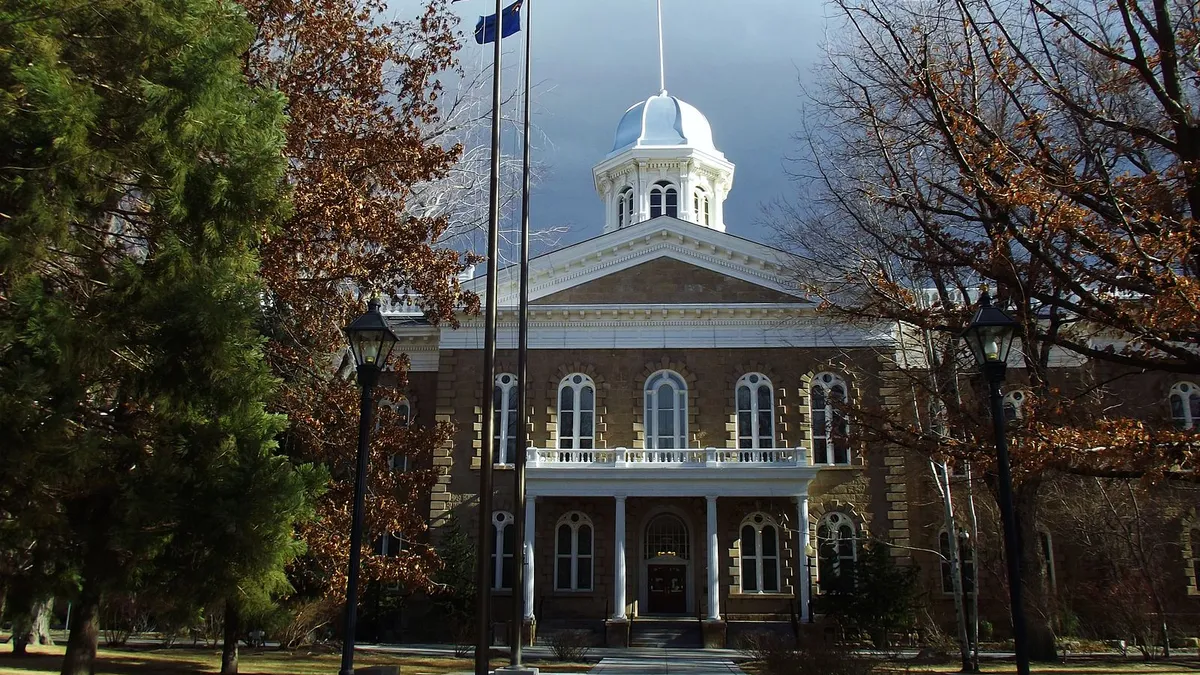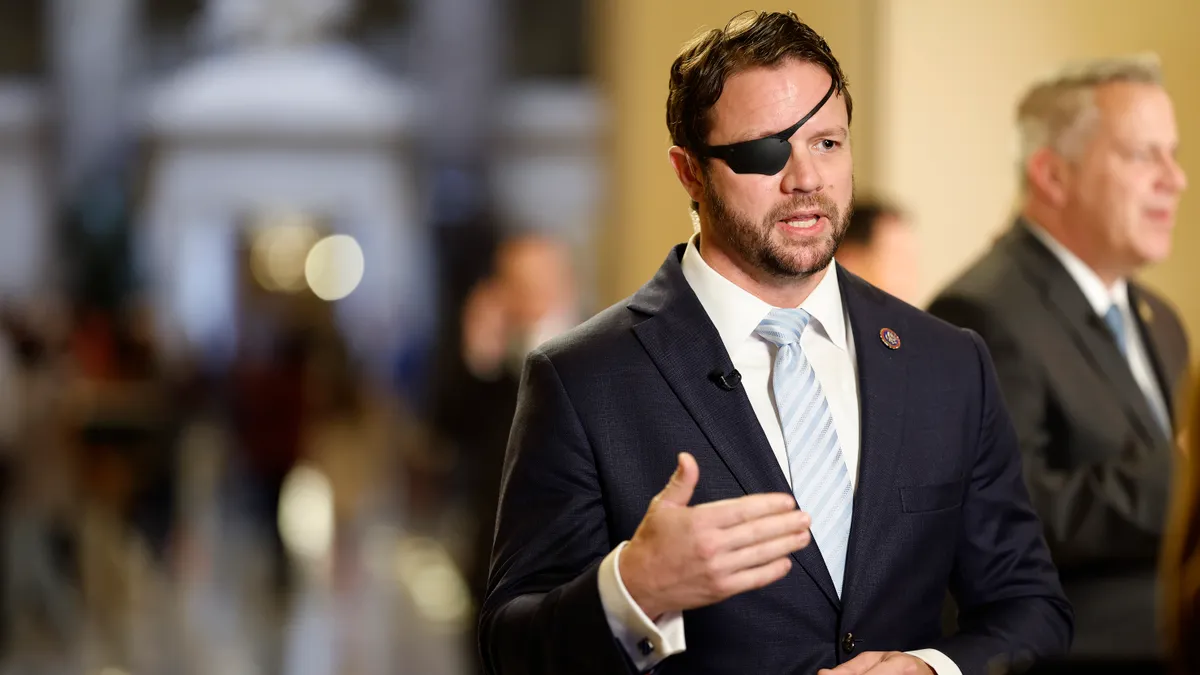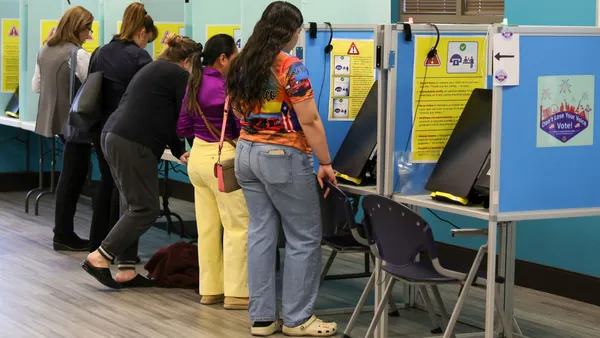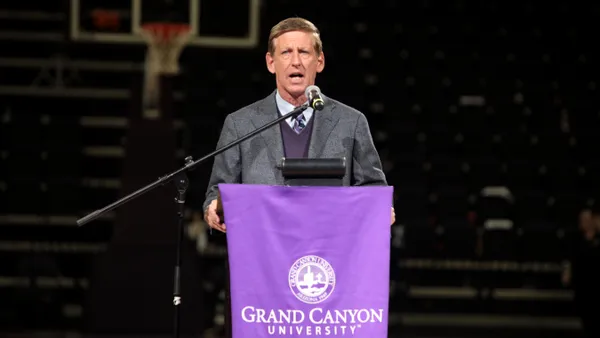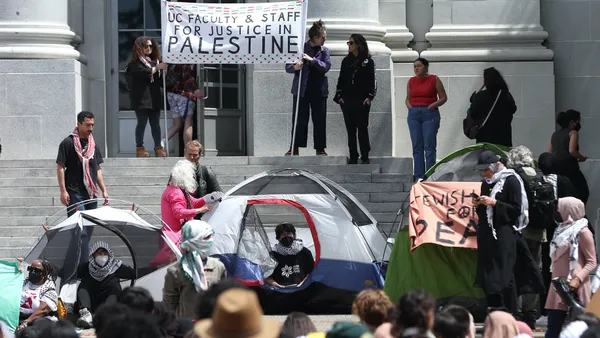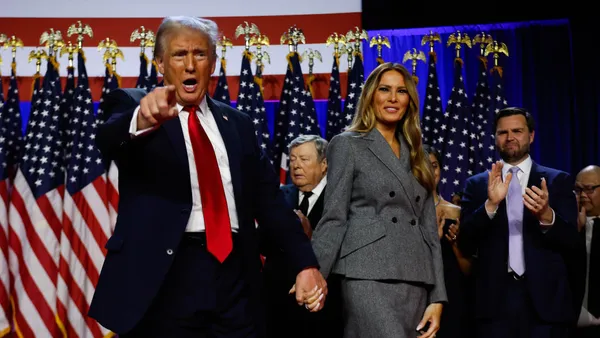Dive Brief:
-
A trio of Nevada Republican state lawmakers are reviving a proposal to separate the state's community colleges from its public higher education system.
-
One of those lawmakers attempted to spin off the four community colleges from the Nevada System of Higher Education in 2017, arguing in part that the state's funding model favored its four-year institutions, not its two-year schools.
-
State officials have renewed interest in the idea, however, as they consider how community colleges figure into the state's economic recovery from the pandemic.
Dive Insight:
Nevada Gov. Steve Sisolak, a Democrat, raised the idea of an independent community college system in his State of the State address earlier this year.
He called for the legislature over the next two years to move the colleges under "a new, independent authority that will focus on making Nevadans job ready." Sisolak said during the speech that community colleges would play "an even bigger role" in workforce development.
Three months later, lawmakers, including the state Senate's minority leader, introduced the bill that would separate the community colleges from NSHE as early as July 2022. It would create a new governing board for them, with its members appointed by the governor.
The four community college presidents opposed the previous iteration of the legislation, the Las Vegas Review-Journal reported in 2017. However, the publication reported six former community college presidents are working with the current bill's sponsors.
NSHE and representatives from the four community colleges did not respond to Higher Ed Dive's emailed request for comment, but NSHE chancellor Melody Rose does not support the current proposal, according to the Review-Journal.
Revamping Nevada's community colleges has been pegged as a key tactic in revitalizing its economy after the pandemic subsides.
A recovery plan from the state economic development office calls for a redesign of the community colleges' governance structure and funding mechanism. These institutions also need advisory boards, with representatives from industries near the campuses, that help them prioritize mutually beneficial policies and programs, the report states.
Federal officials are hopeful that community colleges will help buoy the U.S. economy following the health crisis. Education Secretary Miguel Cardona called them the nation's "best-kept secret" during his confirmation hearing in February, while President Joe Biden included $12 billion to upgrade their facilities and technology in his sweeping infrastructure proposal.



